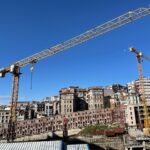President Erdoğan’s drastic changes to the Turkish constitution, rule of law, and civil society have fundamentally altered free speech laws to ensure his electoral advantage. The 2023 elections are not free or fair—they are stacked to the advantage of the ruling party—but they are real and, to a limited extent, competitive. Gearing up for the May 28 runoff it is therefore essential to understand the methods by which Erdoğan exerts control over both the narrative and the electorate. The following is a brief overview of one of Erdoğan’s most important, diffusive, and subtle methods: censorship.
Censorship using the Legal System
On October 13, 2022 the Turkish Parliament approved amendments to Turkish press law. Article 29 was added to mandate punishments for disseminating disinformation. Both Turkish political opposition, as well as human rights organizations across the world, criticized the law for its lack of specificity, claiming that its enforcement would amount to outright censorship. The Venice Commission, which advises the Council of Europe, said the law would lead to “arbitrary restrictions of freedom of expression.”
The English translation of the text of Article 29 is as follows:
- A person who publicly disseminates false information about the country’s internal and external security, public order, and general health in a way that is suitable for disrupting public peace, solely for the purpose of instilling anxiety, fear, or panic in public, faces imprisonment for one to three years.
- If the culprit commits the offense while hiding his true identity or within the context of an organization’s activity, the penalty imposed under the first paragraph is doubled.
While controversial overall, Article 29 of the amendment is the most problematic because its wording is vague. Known as the “social media law” or “Disinformation law,” its ambiguity allows the government to abuse or misinterpret any criticism as disinformation. The law equates internet users to journalists at official media outlets. While obligating state media outlets to issue press cards to journalists, the law at the same time allows for social media users to be treated by the government as journalists—thereby removing their anonymity. After the law was implemented, court orders blocked 14 Twitter accounts with hundreds of thousands of followers belonging to journalists such as Can Dundar, as well as news outlets like Birgun or Sol Haber.
Implementing Censorship
A legal framework alone is insufficient to implement government censorship and make it effective. To that end, Erdoğan has two bodies at his disposal that allow for the implementation of censorship measures. These bodies are the Radio and Television Supreme Council/Radyo ve Televizyon Üst Kurulu (RTÜK), and the Information and Communication Technologies Authority/Bilgi Teknolojileri ve İletişim Kurumu (BTK). RTÜK exploits its regulatory authority to ban freedom of expression by demanding that all Turkish language foreign media obtain a license, subject to bans if the outlets do not conform to RTÜK’s standards for online content—as happened to Deutsche Welle and Voice of America in June 2022. BTK is a communications regulatory body that is affiliated with the Ministry of Transport and Infrastructure. It has the technical capacity to impose censorship by blocking undesirable content and collecting data.
These two regulatory bodies work in tandem by distributing labor: RTÜK interferes with and controls content, whereas BTK supplies the technical means for doing so in the form of user data. For example, RTÜK intervened in multiple TV series and movie platforms, censoring scripts with LGBTQ+ themes before they were broadcast. Meanwhile, effectively given the authority to monitor and access all internet users’ data, BTK has required internet service providers to allow access to internet traffic records on an hourly basis. Together, these two bodies have become the leaders of digital censorship in Turkey.
Control of Data
Erdogan resorts to various methods of control over the flow of information in order to maintain power and manipulate the electorate. Turkish government bodies are subservient to the presidency. There are no independent bodies within the Turkish political landscape. This means that even allegedly independent institutions manipulate numbers, and government bodies rarely publish credible data. For example, in May 2022 the official Turkish statistics institute established the inflation rate at 73.5 percent, the highest since 1998. That data has been disputed by various independent economists, but institutions like ENAG are vulnerable to censorship and legal retribution for reporting on accurate numbers.
Internet Restrictions
Online platforms have been particularly important in this election, as 90 percent of traditional media in Turkey are in close cooperation with the government and disproportionately cover the campaign of President Erdogan and the ruling party. The Turkish government has equipped itself with extensive digital censorship tools, which it has repeatedly used to silence dissident views online. In the past years, thousands of journalists, political opponents, and others have been put on trial for criticizing the President and the government online, or even simply for posting or liking critical articles on social media.
The government also frequently blocks access to websites that criticize the ruling party or certain ministers. Social media platforms that refuse government requests to transmit user data or extract content are likely to face heavy fines or bandwidth restrictions that render them virtually unusable in Turkey. Moreover, the Turkish government’s requests for user data to Meta have increased significantly since 2018, with Turkey consistently ranking top 10 in the world among the countries making such requests. The UN High Commissioner for Human Rights has stated that the deliberate disruption of internet services is “a strong indication of the worsening of the human rights situation.”
The Turkish government also has a tendency to control times of crisis by restricting access to popular social media platforms, as it did after the devastating earthquakes of February 2023. Ahead of the first round of elections on May 14, it asked Twitter to block several opposition accounts, and Twitter complied. Elon Musk tweeted out the government’s requests, and claimed over Twitter that he complied in order to keep Twitter from being blocked entirely ahead of the election.
Intimidation of Political Opponents: Political Prisoners
Erdoğan uses his considerable control over the judiciary and civil society to silence political rivals—both prominent public figures and dissident activists and journalists. For instance, Istanbul Mayor Ekrem İmamoğlu was sentenced to two years, seven months, and 15 days in prison for calling members of Turkey’s supreme election council “fools” in a press release three years ago. The Turkish constitution stipulates punishments for slandering and offending based on complaints, but the interpretation of both terms remains vague and unclear. This case shows how Turkey’s ambiguous censorship laws can be used more directly to eliminate political opponents and competitors. İmamoğlu’s case is pending, but Article 76 of the Constitution stipulates that those who have been sentenced to a total prison sentence of one year or more cannot be elected as members of parliament. Article 101, meanwhile, requires that presidential candidates have the “qualification to be elected as a member of parliament.” Prior to the opposition bloc’s candidacy announcement, the result of this ruling effectively neutralized İmamoğlu as a political rival for Erdoğan.
The case of Selahattin Demirtaş, the former co-chair of the People’s Democratic Party (HDP), is one of many in which the Turkish state is abusing criminal law to censor political opponents. He has been jailed since 2016, after Ankara revoked parliamentary immunity for politicians, and faced more than 100 separate charges in total, ranging from being the leader of a terrorist organization to insulting the president. The European Court of Human Rights—whose judgments Turkey is legally required to abide by—has ordered Demirtas’ immediate release, finding that his detention goes against “the very core of the concept of a democratic society.” But the Turkish Government has again attempted to justify his ongoing detention with reference to purportedly new evidence which had emerged after the ECtHR’s judgment and had thus not been examined by the ECtHR within the scope of the present case in 2022. The Court in the Grand Chamber’s decision concluded that “the reasons put forward by the authorities for the applicant’s pre-trial detention had merely been cover for an ulterior political purpose, which was a matter of indisputable gravity for democracy.”
Osman Kavala, a human rights activist and philanthropist, has been sentenced to life in prison without the possibility of parole on highly suspect and controversial charges of attempting to overthrow the government. Kavala was first accused of funding the 2013 Gezi Park protests, which many view as the start of Erdogan’s authoritarian turn. A court acquitted and released Kavala in February 2020 — only for the police to arrest him before he had a chance to return home to his wife. Another court then accused him of being involved in a failed 2016 coup attempt against Erdogan. Kavala ultimately ended up facing both sets of charges, and the court convicted him of the same set of charges for which he had been cleared in 2020. In 2019, the European Court of Human Rights found that Osman Kavala’s right to liberty was violated and that his sentence was underpinned by the government’s intention to silence him.
The ECtHR called for Kavala’s immediate release. Instead of implementing the ruling, Turkey’s authorities have subjected Kavala to further prosecution,on farcical charges without any evidence. In February 2022, the Committee of Ministers of the Council of Europe, in charge of monitoring the implementation of ECtHR rulings, initiated infringement proceedings against Turkey for its refusal to implement the Court’s ruling.
Kavala and Demirtas are Turkey’s most high profile political prisoners, but degraded rule of law means that there are thousands of such prisoners in Turkey. Ahead of May 14 elections, a wave of Kurdish journalists were detained by police—at least 128 people in 21 cities. Among those detained were 10 journalists, a lawyer representing arrested Kurdish journalists in other court cases, and members of the pro-Kurdish Peoples’ Democratic Party (HDP), the third-biggest party in Turkey’s parliament. They face up to 15 years in prison if found guilty under Turkey’s anti-terrorism laws.
Erdogan’s Long Arm: Transnational Repression
Another tactic that Erdogan and the AKP employ is the intimidation of journalists and dissidents. Pro-Erdogan media reveals the whereabouts of dissidents and opposition leaders, calling for physical aggression against them, as seen in the case of many dissident journalists who live abroad. Erdogan employs the Turkish intelligence service, MIT, to carry out his policies abroad, including electoral politics among the Turkish diaspora and physical harassment of dissidents. Moreover, human rights activists have accused Turkey of using its role as host of Interpol’s general assembly to push for a crackdown on critics and political opponents who have fled the country.
For critics of President Recep Tayyip Erdogan, Turkish journalist Can Dündar has become a symbol of Turkey’s sweeping crackdown on press freedom, especially since a failed coup in 2016. Dündar, the former editor-in-chief of Turkish daily newspaper Cumhuriyet, and a colleague, Erdem Gul, were both sentenced in 2016 to five years in prison for publishing a video purporting to show Turkish intelligence trucking weapons into Syria. They were released pending appeal after 92 days in custody. Later, Dündar was been sentenced in absentia to 27 years and six months in prison for espionage and aiding an armed organization. Dündar said that he “knew what the verdict in my case would be before the case even ended,” and said that “there are no means to defend yourself in Turkey anymore because the judges and judiciary cannot be trusted.” Dündar now lives under police protection because of various risks, from the Turkish intelligence agency’s widely reported practice of kidnapping dissidents, to possible physical attacks and death threats. NATO member Turkey is also pressing for the return of Bulent Kenes, a dissident journalist and the former editor-in-chief of the Zaman daily newspaper, as one of the demands to be met before Ankara lifts its veto on Sweden’s bid to join the NATO military alliance. Sweden’s top court has prevented the extradition of Kenes, saying there were “several hindrances” to his extradition, including the fact that some of the accusations against him are not crimes in Sweden. Turkey has over time increased the number of people it wants extradited: from 33 to 45 and then 73 and into the 100s, according to unofficial lists published by Turkish-government sponsored media.




